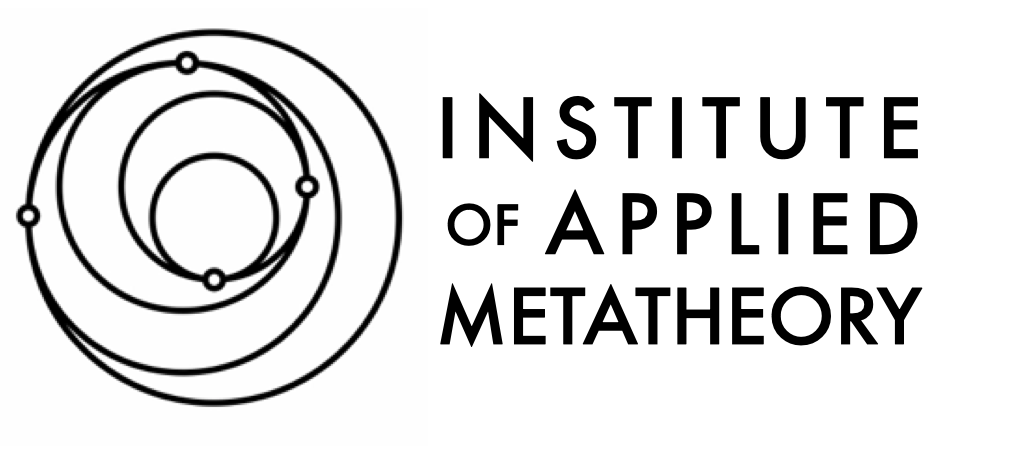
Executive Summary
Approach
This initiative will proceed in three phases:
1. Research & Mapping: Leveraging Visionary Realism—which Nick Hedlund developed under the advisement of Roy Bhaskar and that enhanced Critical Realism with important contributions from Integral Philosophy—the project will deploy critical realist methodologies of immanent critique deeply informed by empirical social and natural scientific findings to illuminate specific systematic category errors, aporias, and absences on the level of deep sensemaking and meaning-making.
The focus of the research will be a mapping of the precise and detailed contours of this network of root causes, tracing the lines of concatenated causation from the exterior level of concrete problem-symptoms on the level of our social systems to their systematic category errors rooted in our theories, worldviews, and metatheories—our collective systems of sensemaking, and, ultimately, meaning-making. Upon identifying the primary network of root causes, their interrelationships will be examined with an eye for their overlapping patterns, interdependencies, feedback loops, nonlinear dynamics, etc. Put simply, this project seeks to illuminate specific ways that our worldviews are distorting our world and its deeper potentials while pointing the way toward the actualization of those potentials.
2. Expert Sensemaking & Validation: The initiative will continue with an innovation lab-style symposia series that convenes metacrisis domain-level experts to develop enhanced mutual understanding, and critically evaluate and iterate the metacrisis mapping from phase 1. This phase of the project is intentionally processual and social, seeking to harness collective intelligence, surface knowledge gaps or inquiries, and generate coherence around strategic themes, strategy portfolios, and concrete tactics that could begin to address the root causal network of the metacrisis.
3. Dissemination: The initiative will submit for publishing one or more papers that result from its first two phases, while also publishing a website with its interactive map, findings, ongoing research, and executive summaries of strategic themes and portfolios for external stakeholders.
Transformational Thesis
Big Pictures have been out of vogue for a long time, and yet increasingly, philosophers, scholars, and everyday people are recognizing that they inexorably “sneak in the back door” anyway, and human life is simply diminished without them. Judging from the metacrisis, it is more than just a possibility that they also might be the key to understanding the very problem that their lack has generated: a deep crisis of human meaning that now expresses itself variously throughout our deteriorating life-sustaining and life-enriching systems. This project aims to use a sophisticated, integrative, and comprehensive philosophy to show what is possible when we leverage Big Pictures to support new forms of sensemaking and meta-strategizing about complex, wicked problems. We believe that this approach holds the promise of a renewed sense of meaning and purpose as the deeper “patterns that connect” are revealed and new narratives of wholeness, transcendence, and interconnectedness are disclosed.
What’s At Stake
The cognitive, emotional, and spiritual demands of the metacrisis exceed the capacity of our dominant philosophical and scientific worldviews, creating a “complexity gap” that has us—as Harvard developmental psychologist Robert Kegan puts it, “in over our heads.” The metacrisis is both symptom and cause of this complexity gap. We can’t understand, much less hope to address, what we can’t properly see, and we can’t properly see what we’ve not marshaled the cognitive capacity to understand. Thus, we struggle with fragmented understandings of interconnected global challenges, inadequate sensemaking frameworks, fragmented and piecemeal ‘solutions’, and a deep crisis of human meaning in the face of overwhelming complexity. And yet Big Pictures are emancipatory precisely because they non-reductively ground complex phenomena in the sense that they are tractable when treated in their holistic complexity, and to some degree rationally accessible.
If ever there was a critically decisive, numinous, and opportune moment in human history—a kairos, as the ancient Greeks would have it—this is it. The stakes for our future on this planet could not be higher. The process of building a “big picture of the world’s biggest problem” is not only the foundation of a 21st-century orienting praxis for scholars, policymakers, philanthropists, social impact leaders, and others; it is also a living engagement into an emerging, fuller integrative worldview that is capable of re-enchanting questions of ultimate concern with a profound, post-rational sense of faith.
Support Requests
To realize this ambitious project, we’re seeking support in several key areas. We need funding to support our research efforts, convene expert symposia, and develop sophisticated digital tools. We’re also looking for collaborations with experts across metacrisis domains and partnerships with academic institutions and think tanks to broaden our reach and impact.
Get Involved
There are many ways to engage with and support this vital work. We invite experts to participate in our symposia and contribute to the research and mapping process. Once our interactive metacrisis topology is available, we welcome feedback from all quarters to refine and improve our understanding.
We encourage everyone to help spread awareness about the importance of Big Picture thinking in addressing global challenges. Those working in relevant fields might consider applying our metacrisis framework to their own work or research. Support through funding or partnerships is always welcome, as is engagement with our publications and online resources.
By working together to map and understand the metacrisis, we can all play a part in shaping a more integrated, meaningful, and hopeful response to the complex challenges of our time.
Please log in in order to complete your donation.
